How NSS volunteers in Gujarat fought COVID crisis at the frontline
R. Radhika | April 24, 2021 | 04:34 PM IST | 6 mins read
During the months of lockdown last year, NSS units in colleges across Gujarat mobilized resources for food, masks, sanitation.
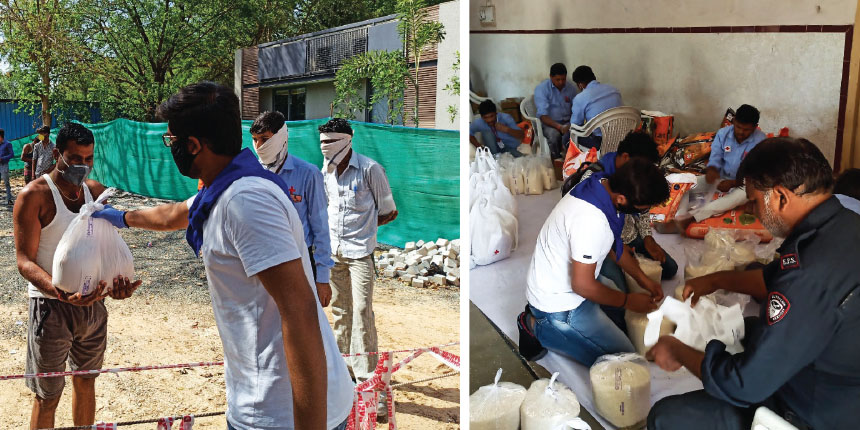
NEW DELHI: The risk of contracting a life-threatening virus and the lockdown did not discourage Shaikh Afzal, a final year student of LD Engineering College, Ahmedabad from stepping out to collect food grain for the people in need.
A volunteer with the government-led National Service Scheme, in his case the NSS unit of Gujarat Technological University, Afzal felt the need to be on the ground despite the inhibitions of his family members. While the country was under a nation-wide lockdown in March last year, volunteers like Afzal risked their lives to help migrant workers stranded for days
without supplies.
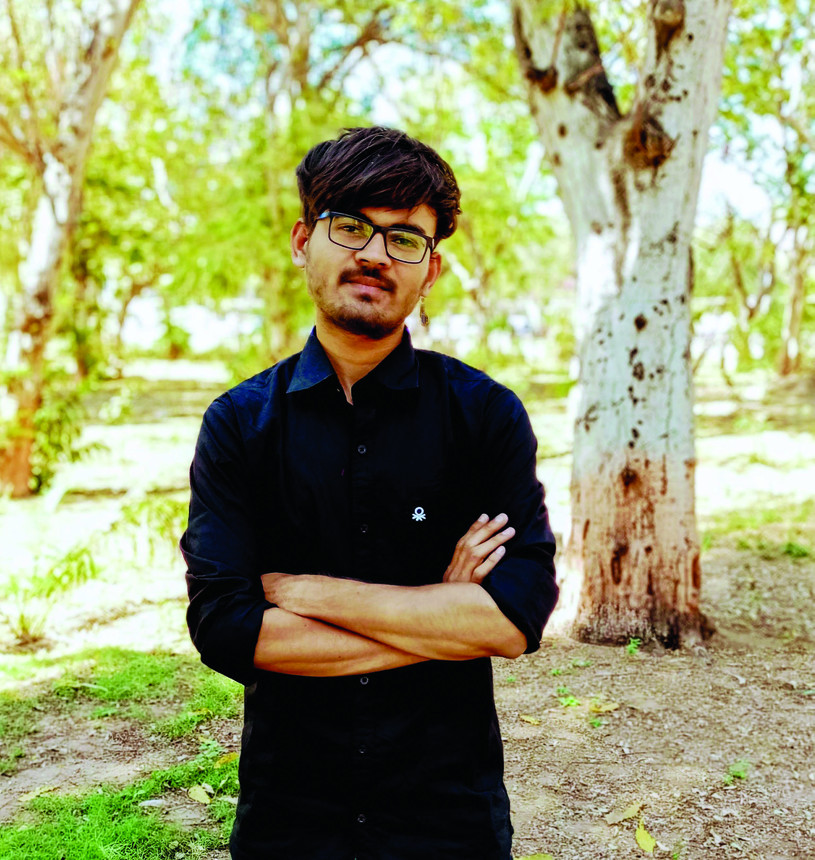
“I have faced a shortage of food for days at home during the lockdown and I understood their situation. They have extremely limited means. I decided to help them despite the risks,” said Afzal who resides with his 70-year-old grandmother and five other family members. He spent two months distributing food kits in various parts of Ahmedabad.
Soon after the central government announced the countrywide shutdown to control the spread of the coronavirus, a wide range of problems emerged, especially for the working class. The lockdown was extended for nearly four more months. Having lost their jobs, thousands of migrant workers attempted to leave major cities for home. In the absence of food reserves, many were pushed into starvation and others struggled to make ends meet.
Like Afzal, more than 5,000 student volunteers associated with NSS units in universities across Gujarat carried out COVID relief projects during the initial phase of lockdown. From providing masks, hand sanitizers and dry ration kits, to managing large crowds along with the police, students participated in several measures.
Prompt relief in Ahmedabad
Ahmedabad, one of the major cities employing daily wage workers and construction workers from bordering states, experienced food shortages amid the extended lockdown. NSS units in various colleges kicked into action to provide ground relief.
Along with Afzal, a team of 15 NSS and National Cadet Corps (NCC) volunteers in coordination with Ahmedabad’s district magistrate’s office conducted an extensive COVID relief drive. The team under the leadership of Chaitanya Sanghvi, the college’s NSS program officer, raised Rs. 3.69 lakh in donations from teachers and students’ parents to arrange for food kits. The volunteers distributed more than 12,500 kits in two months.
“A lot of parents were concerned about their [students’] health but my personal assurance that COVID-19 safety measures will be taken while helping others made them feel confident,” said Sanghvi. “The students were given training by the GIDM [Gujarat Institute of Disaster Management] on how to respond to various challenges on the field,” he added.
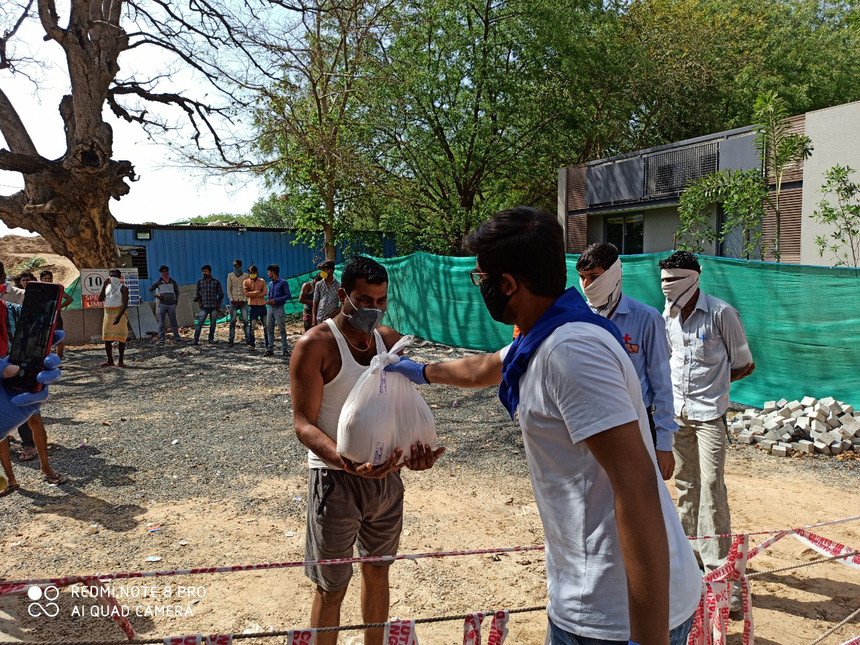 Student of LD Engineering College, Ahmedabad distributing ration kits
Student of LD Engineering College, Ahmedabad distributing ration kits
Each day, for nearly two months, the team distributed 500 kits that sustained families of four for at least 10 days. On several occasions, the team members recalled being overwhelmed by the gravity of the situation on the ground. “Every day we would find a new challenge before us. We had to be cautious about our own safety while maintaining safe distance among those who came to collect the kits. The chaos escalated at times and we had to call the local police to maintain order,” said Deval Naika, a final-year mechanical engineering student.
The relief work began with 16 volunteers but the group expanded into a large team of 100 students after the initial phase of the project ended in success. The students were asked to work on the field in rotation. The effort, according to Sanghvi, helped families that were severely starved amid the lockdown. “I remember providing a food kit to a migrant worker’s family of 12 members. They told me that they were going to eat solid food after 12 days of starvation. There were small kids delighted at the sight of food. I will never forget that day,” recalled Sanghvi.
The team, in a tie-up with the Indian Red Cross Society, also conducted a blood donation drive for thalassemia major patients who were facing a shortage of blood supply during the lockdown. To allay the fear of blood donors, the team remotely reached out to the willing donors on mobile donation vans in various parts of Ahmedabad.
Porda village, Anand
Another NSS volunteer, Kishan Nileshkumar Dave, studying in Natubhai V. Patel College of Pure and Applied Sciences, Vallabh Vidyanagar, managed to provide relief to 100 families in his village, Porda, in Anand district. The volunteers carried out a multifaceted relief drive which included the distribution of food, masks, sanitizing common gathering areas and distribution of Ayurvedic immunity boosters.
Dave and his group of 10 volunteers started a fundraiser to provide relief to the families struggling without any financial help in the period of lockdown. With the help of the village sarpanch and some of its well-heeled families, Dave managed to collect enough funds to feed the hungry for more than a month.
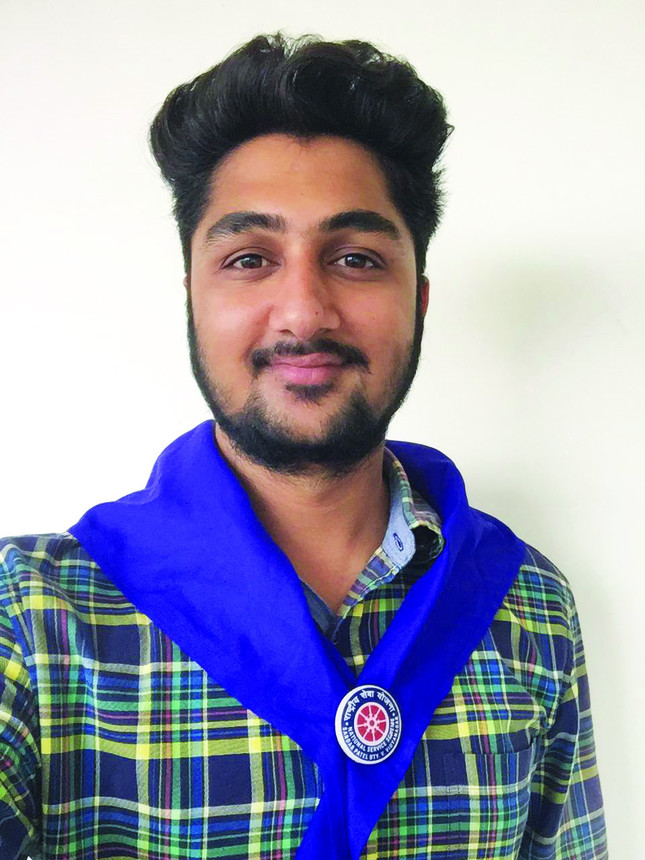
“The money was utilized to cook food and deliver to each villager in need. We also maintained meticulous records of people who require urgent help and avoided missing out on anyone who needed attention,” said Dave. This group also served food to the policemen and health-workers on
COVID-19 duty.
The team also engaged local tailors to sew 2,100 masks to be distributed in the community. In this way, they supplied masks to 920 families of the village and surrounding areas.
The volunteers also prepared herbal tonic under the supervision of the Ayurvedic Aushadhi Kendra of a nearby village, Aradi, and distributed it in Porda and the surrounding areas. Around 1,500 villagers received the immunity booster.
In addition, Dave also conducted a sanitization drive for 20 days. “Providing food and masks was not enough, we also used a sprayer machine and fogging machine provided by the Gram Panchayat and sanitized all the streets, milk collection centres, banks, and other areas of the village,” said Dave. Close to 900 houses of the village were sanitized. The volunteers also raised awareness among the villagers about the significance of personal hygiene, wearing the mask, washing hands frequently, and maintaining social distance.
As the lockdown caused huge losses for the farmers, this group brought vegetables from the village farmers and sold them at fair price to the villagers and residents of slum areas of the village like Indira Nagari. While some group members sold the vegetables, others helped maintain social distancing among the buyers.
Food delivery on national highway
With education institutions shut for months, many students had left the college campuses. They planned to contribute from home. Several NSS volunteers of Vishwakarma Engineering College, Ahmedabad, stepped up to help the migrant workers heading home along the National Highway eight. “Our NSS volunteers living close to the NH provided home-cooked food whenever possible to several families traveling on foot. Since the lockdown was sudden, it was difficult to provide funds. Therefore, each student utilised their own resources,” said Shiza Sheikh, a second-year student of electronics and communication.
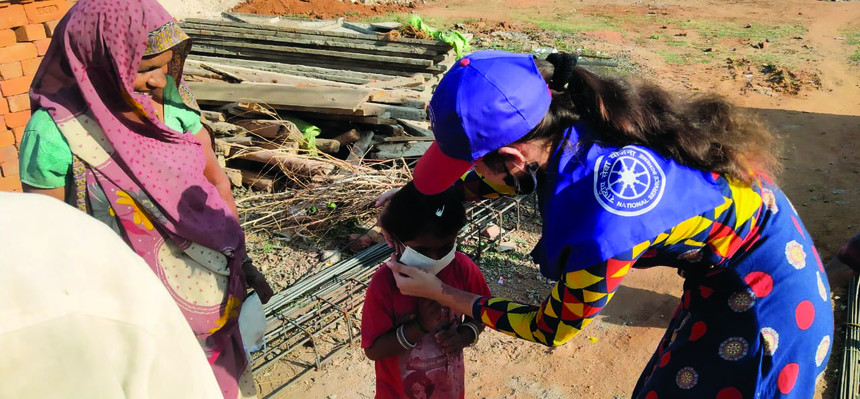
At the beginning of COVID-19 lockdown, to meet the sudden rise in demand of masks, the students also distributed 1,500 hand-stitched masks from unused cloth they found at home and distributed it in various parts of Gujarat. “Even though students were scattered throughout the state, the NSS volunteers of our college were determined to help people who were in need. The students learned how to make masks through YouTube videos or by learning stitching from their parents,” Sheikh added.
Write to us at news@careers360.com
Follow us for the latest education news on colleges and universities, admission, courses, exams, research, education policies, study abroad and more..
To get in touch, write to us at news@careers360.com.
Next Story
]Beyond The 'Fixed Pipe’: What UGC's Academic Bank of Credits entails
A student who wants to study in an IIT [Indian Institute of Technology] but did not get admission will be able to do at least one or two of their courses and get familiar with the culture and teachers. However, by doing two programs at IIT, one cannot get the degree. But to attain a degree, IITs will come up with their own rules, for instance, 40 percent or 50 percent credits which leads to a degree in a particular branch of engineering. If engineering students want to learn something beyond the
R. Radhika